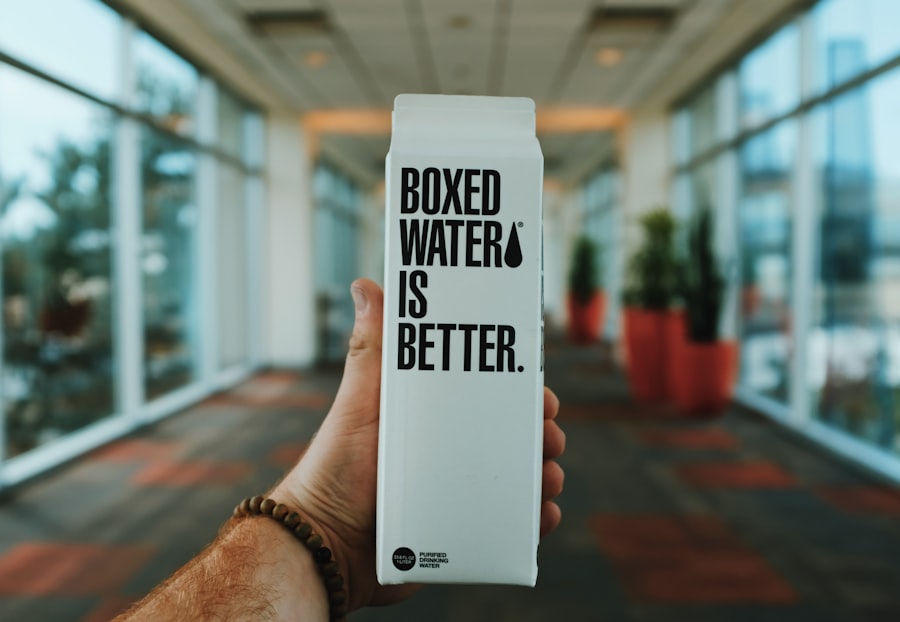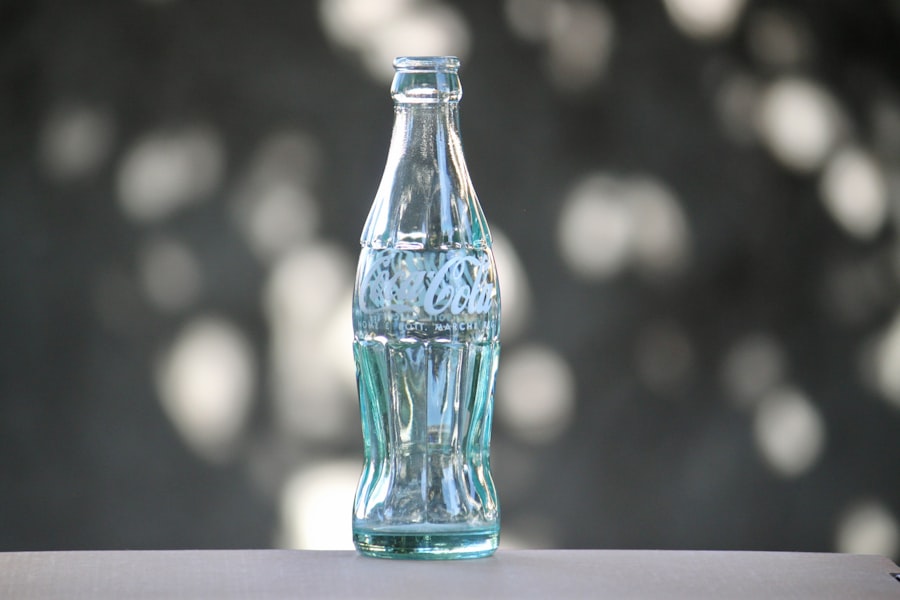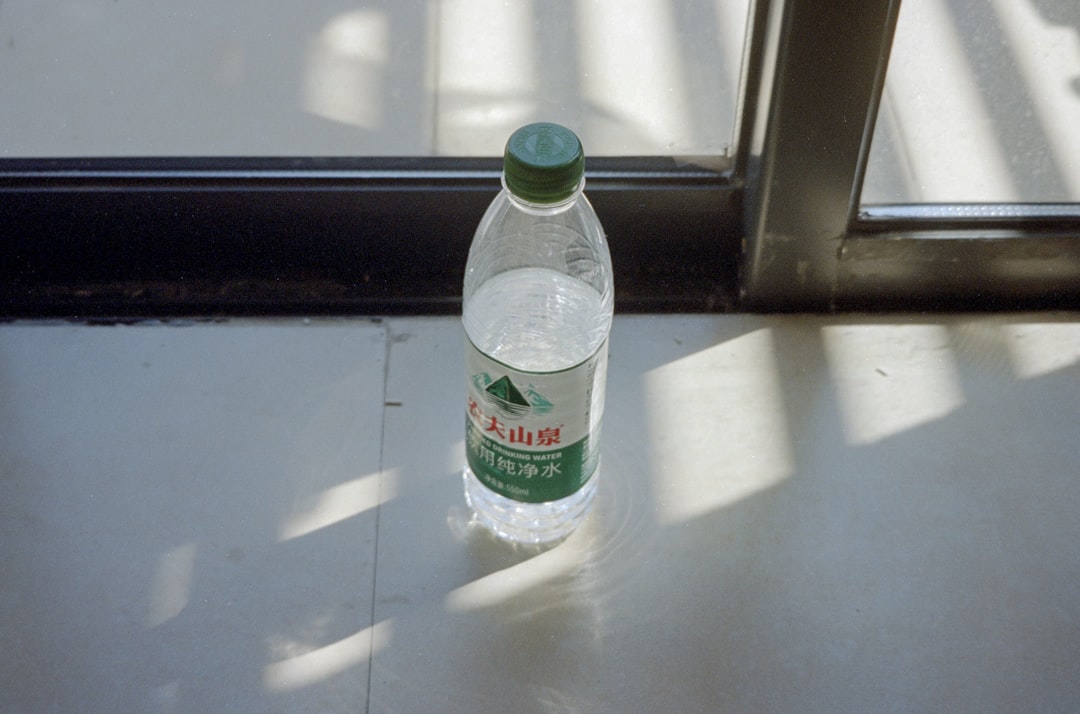The bottled water industry has experienced a meteoric rise over the past few decades, transforming from a niche market into a global phenomenon. In the early 1970s, bottled water was largely viewed as a luxury item, primarily consumed by the affluent or those seeking convenience. However, as health consciousness began to permeate society, the perception of bottled water shifted dramatically.
By the late 1990s and early 2000s, it became a staple in households, offices, and social gatherings, often marketed as a healthier alternative to sugary beverages. This surge in popularity can be attributed to various factors, including increased awareness of hydration’s importance and the growing concern over tap water quality. As bottled water gained traction, companies began to capitalize on its appeal by introducing a wide array of options, from spring water to flavored varieties.
The marketing strategies employed by these companies played a crucial role in shaping consumer preferences. They positioned bottled water not just as a beverage but as a lifestyle choice, associating it with fitness, wellness, and environmental consciousness. This branding strategy resonated with consumers, leading to an exponential increase in sales and consumption.
Today, bottled water is one of the most consumed beverages worldwide, surpassing even carbonated soft drinks in many markets.
Key Takeaways
- Bottled water consumption has surged globally, driven by convenience and marketing.
- Environmental concerns include plastic waste and resource depletion from production.
- Bottled water is often significantly more expensive than tap water without proven quality benefits.
- Marketing strategies create perceptions of purity and health that may not reflect reality.
- Sustainable alternatives like reusable bottles and improved tap water infrastructure are key to reducing impact.
The Environmental Impact of Bottled Water
The environmental ramifications of bottled water production and consumption are profound and multifaceted. One of the most pressing concerns is plastic waste. The majority of bottled water is packaged in single-use plastic bottles, which contribute significantly to global plastic pollution.
Despite efforts to promote recycling, a substantial portion of these bottles ends up in landfills or oceans, where they can take hundreds of years to decompose. This not only harms wildlife but also disrupts ecosystems, leading to long-term environmental degradation. Moreover, the production process for bottled water is resource-intensive.
It requires significant amounts of water for both the beverage itself and the manufacturing of plastic bottles. In regions where water scarcity is already an issue, this can exacerbate local water shortages and create tensions among communities. Additionally, the carbon footprint associated with transporting bottled water—often across vast distances—further compounds its environmental impact.
As consumers become increasingly aware of these issues, there is a growing call for more sustainable practices within the industry.
The Cost of Bottled Water

The financial implications of bottled water consumption are often overlooked in discussions about its convenience and perceived quality. While it may seem like a small expense to purchase a bottle of water on-the-go, the cumulative cost can be staggering. For instance, when compared to tap water, which typically costs mere cents per gallon, bottled water can range from $1 to $3 per bottle or more.
Over time, this can lead to significant expenditures for individuals and families who rely on bottled water as their primary source of hydration. Furthermore, the economic impact extends beyond individual consumers. Communities that rely heavily on bottled water sales may find themselves at the mercy of fluctuating market prices and corporate decisions.
Local businesses that sell bottled water often face competition from larger corporations that can afford to undercut prices. This dynamic can stifle local economies and limit consumer choices. As awareness grows about the hidden costs associated with bottled water, many are beginning to reconsider their purchasing habits in favor of more economical and sustainable alternatives.
The Quality of Bottled Water
| Metric | Description | Typical Range | Units | Standard/Guideline |
|---|---|---|---|---|
| pH Level | Measure of acidity or alkalinity | 6.5 – 8.5 | pH units | EPA / WHO |
| Total Dissolved Solids (TDS) | Concentration of dissolved substances | 0 – 500 | mg/L | EPA Secondary Standard |
| Lead | Heavy metal contaminant | 0 – 0.005 | mg/L | EPA Maximum Contaminant Level |
| Arsenic | Toxic element | 0 – 0.01 | mg/L | EPA Maximum Contaminant Level |
| Coliform Bacteria | Indicator of microbial contamination | 0 | CFU/100 mL | FDA Standard |
| Fluoride | Natural mineral, dental health impact | 0.6 – 1.2 | mg/L | EPA Secondary Standard |
| Chloride | Salt content indicator | 0 – 250 | mg/L | EPA Secondary Standard |
| Hardness (as CaCO3) | Concentration of calcium and magnesium | 0 – 180 | mg/L | EPA Secondary Standard |
| Microplastics | Plastic particle contamination | 0 – 10 | particles per liter | Emerging Concern |
The quality of bottled water is often touted as superior to that of tap water; however, this assertion warrants closer examination.
In fact, studies have shown that a significant percentage of bottled water brands do not meet the stringent safety standards set for tap water in many regions.
This raises questions about the actual benefits of choosing bottled over tap. Additionally, the lack of transparency in labeling can further complicate consumers’ understanding of what they are purchasing. Many brands do not disclose their source or the treatment processes used, leaving consumers in the dark about the quality they are consuming.
This ambiguity can lead to misplaced trust in bottled water as a healthier option when, in reality, it may not be significantly different from what comes out of the tap. As consumers become more discerning about their choices, there is an increasing demand for clearer labeling and greater accountability from bottled water companies.
The Marketing Tactics of Bottled Water Companies
Bottled water companies have mastered the art of marketing, employing various tactics to create an image that resonates with consumers. One prevalent strategy is the use of aspirational branding that associates bottled water with luxury and exclusivity. By positioning their products as premium offerings—often packaged in sleek designs and marketed with high-profile endorsements—companies create a perception that drinking bottled water is not just about hydration but also about status.
Another effective tactic is the emphasis on health benefits. Many brands tout their water as being enriched with minerals or sourced from pristine locations, appealing to health-conscious consumers seeking natural alternatives. This marketing approach often capitalizes on fears surrounding tap water quality and promotes bottled water as a safer choice.
Additionally, companies frequently engage in sponsorships and partnerships with fitness events or wellness influencers to further solidify their association with health and vitality. These strategies have proven successful in cultivating brand loyalty and driving sales.
The Health Concerns of Bottled Water

While bottled water is often perceived as a healthier option compared to sugary drinks or sodas, there are several health concerns associated with its consumption that merit attention. One significant issue is the potential leaching of harmful chemicals from plastic bottles into the water itself. Studies have indicated that certain types of plastic can release substances like bisphenol A (BPA) or phthalates when exposed to heat or prolonged storage conditions.
These chemicals have been linked to various health problems, including hormonal disruptions and increased cancer risk. Moreover, the misconception that bottled water is always free from contaminants can lead consumers to neglect their overall hydration strategy. Relying solely on bottled water may result in inadequate mineral intake if individuals do not balance their diets with other sources of hydration and nutrients.
Additionally, some bottled waters may lack essential minerals found in tap water, which can contribute to deficiencies over time. As awareness grows regarding these health concerns, consumers are encouraged to evaluate their hydration choices more critically.
The Truth About Bottled Water Regulations
The regulatory landscape surrounding bottled water is complex and often misunderstood by consumers. In many countries, bottled water is subject to different regulations than municipal tap water, which can lead to confusion regarding safety standards. In the United States, for example, the Food and Drug Administration (FDA) oversees bottled water regulations; however, these standards may not be as stringent as those imposed on public drinking water systems by the Environmental Protection Agency (EPA).
This discrepancy raises questions about the true safety and quality of bottled products. Furthermore, while some brands may tout rigorous testing and purification processes, there is no universal requirement for transparency in labeling or disclosure of sourcing practices. This lack of oversight can result in significant variations in quality among different brands and types of bottled water.
As consumers become more informed about these regulatory gaps, there is an increasing demand for stricter regulations and greater accountability within the industry.
The Alternatives to Bottled Water
As awareness grows regarding the environmental impact and health concerns associated with bottled water, many consumers are seeking alternatives that align with their values and lifestyles. One popular option is reusable water bottles made from stainless steel or glass, which not only reduce plastic waste but also offer a safer alternative for storing beverages without the risk of chemical leaching. Many individuals now invest in high-quality filtration systems for their homes, ensuring access to clean and safe drinking water without relying on single-use plastics.
Additionally, public initiatives aimed at improving tap water quality have gained traction in various communities. By advocating for better infrastructure and transparency regarding municipal water sources, cities can encourage residents to trust their tap water while reducing reliance on bottled products. Furthermore, educational campaigns highlighting the benefits of hydration through tap water can help shift consumer perceptions and promote healthier choices.
The Global Impact of Bottled Water
The global implications of bottled water consumption extend far beyond individual choices; they encompass economic, social, and environmental dimensions that affect communities worldwide. In developing countries where access to clean drinking water is limited, bottled water often becomes a necessary alternative for survival. However, this reliance can create economic disparities as local populations may struggle to afford basic hydration while multinational corporations profit from their resources.
Moreover, the extraction processes involved in sourcing bottled water can lead to significant ecological consequences. Over-extraction from aquifers can deplete local groundwater supplies and disrupt ecosystems that depend on these resources for survival. This has sparked conflicts between communities seeking access to clean drinking water and corporations prioritizing profit over sustainability.
As global demand for bottled water continues to rise, it becomes increasingly crucial to address these disparities and advocate for equitable access to clean drinking water for all.
The Bottled Water Industry’s Influence on Communities
The influence of the bottled water industry extends into local communities in ways that are often overlooked. On one hand, companies may provide jobs and economic opportunities through bottling plants and distribution networks; however, these benefits can come at a cost. Communities may find themselves grappling with issues such as resource depletion or environmental degradation as corporations prioritize profit over sustainable practices.
Additionally, the marketing strategies employed by bottled water companies can shape consumer behavior and perceptions within communities. By promoting bottled products as superior alternatives to tap water, these companies can undermine public trust in municipal systems and divert attention away from necessary infrastructure improvements. This dynamic can create a cycle where communities become increasingly reliant on bottled products while neglecting essential investments in public drinking water systems.
The Future of Bottled Water
As society grapples with pressing environmental issues and evolving consumer preferences, the future of the bottled water industry remains uncertain. There is a growing movement toward sustainability that emphasizes reducing plastic waste and promoting responsible consumption practices. Many companies are beginning to respond by exploring eco-friendly packaging options or investing in recycling initiatives aimed at minimizing their environmental footprint.
Moreover, advancements in technology may pave the way for innovative solutions that address both consumer needs and environmental concerns. For instance, developments in filtration systems could enhance access to clean drinking water while reducing reliance on single-use plastics. As consumers become more informed about their choices and demand greater accountability from brands, it is likely that the industry will continue to evolve in response to these changing dynamics.
In conclusion, while bottled water has become an integral part of modern life for many individuals around the globe, its implications extend far beyond mere convenience or taste preferences. From environmental impacts to health concerns and economic disparities, the complexities surrounding this industry warrant careful consideration as society navigates its future relationship with bottled products.
The debate over whether bottled water is a scam has gained traction in recent years, with many consumers questioning the necessity and environmental impact of purchasing bottled water. For a deeper dive into this topic, you can read a related article that explores the hidden costs and marketing strategies behind bottled water consumption. Check it out here: com/sample-page/’>Is Bottled Water a Scam?
.
WATCH THIS! The $400 Billion Water Lie: Why Bottled Water Is a Scam
FAQs
What is bottled water?
Bottled water is drinking water packaged in plastic or glass bottles. It can come from various sources, including springs, wells, or municipal tap water.
Is bottled water safer than tap water?
In many developed countries, tap water is regulated and tested regularly to ensure safety. Bottled water is also regulated but may not always be safer than tap water. The safety depends on the source and treatment processes.
Why do people buy bottled water?
People buy bottled water for convenience, taste preferences, perceived purity, or when tap water is unavailable or unsafe.
Is bottled water more expensive than tap water?
Yes, bottled water is significantly more expensive than tap water, often costing hundreds to thousands of times more per gallon.
Are there environmental concerns with bottled water?
Yes, bottled water contributes to plastic waste, energy consumption, and carbon emissions associated with production, transportation, and disposal.
Does bottled water always come from natural springs?
Not necessarily. Some bottled water brands source their water from municipal tap water or other sources, which they may treat before bottling.
Is the quality of bottled water regulated?
Yes, in many countries, bottled water is regulated by government agencies to meet safety and quality standards, but regulations can vary.
Can bottled water be considered a scam?
While bottled water is a legitimate product, some critics argue it is overpriced and marketed misleadingly, especially when it is essentially treated tap water. Whether it is a “scam” depends on individual perspectives and specific brands.
How can consumers make informed choices about bottled water?
Consumers should check the source, treatment methods, and certifications of bottled water brands, consider local tap water quality reports, and weigh environmental impacts before purchasing.
